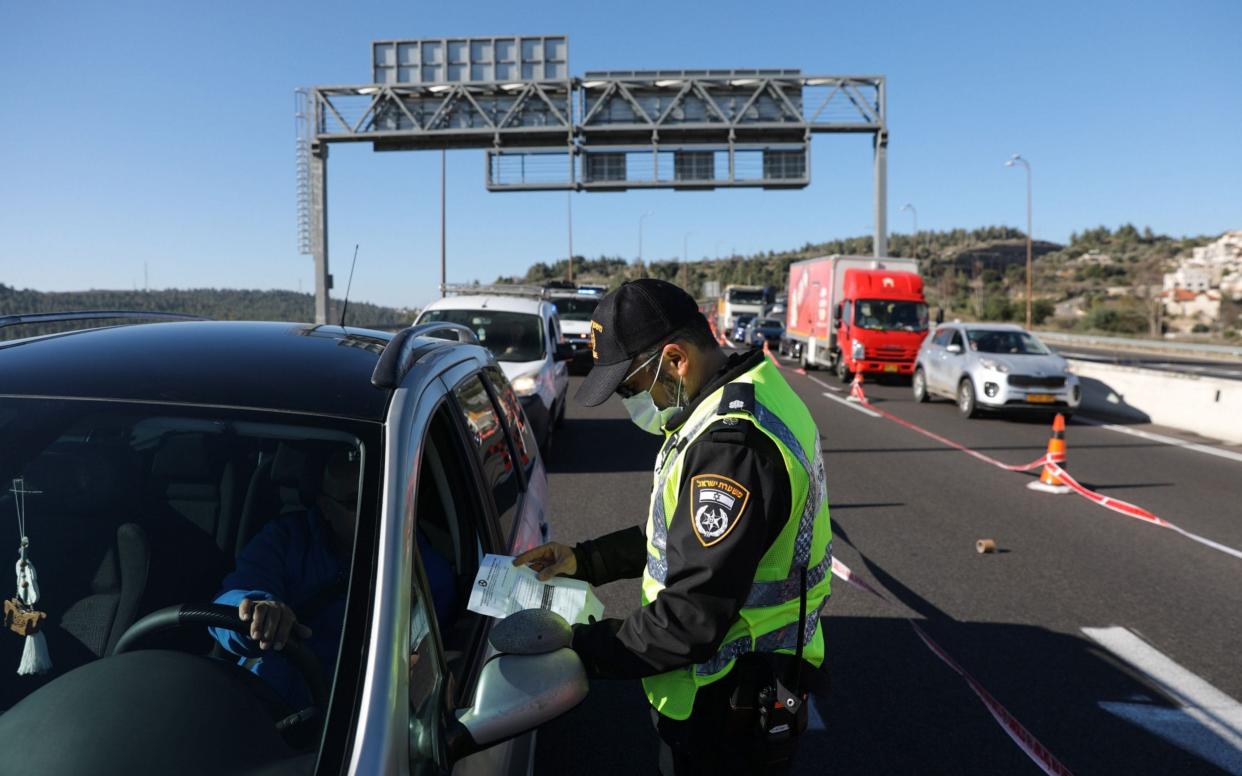Israel forced to tighten lockdown measures despite world-beating vaccine drive

Israel tightened its national lockdown restrictions on Friday amid a soaring number of cases, despite a deal being struck with Pfizer that aims to have all over 16s inoculated by the end of March.
Cases have risen to over 8,000 a day this week, the highest since a record of 9,000 in September, proving that even a lightning vaccination drive will not necessarily outpace coronavirus.
All schools and non-essential businesses have been ordered to close and more police checkpoints have been set up across the country. Israelis have so far largely ignored previous travel and social distancing restrictions limiting them from venturing more than a kilometre from their homes, except for essential reasons.
Leading the global race with their vaccination campaign, Israel had hoped to stamp out the virus by spring. Almost 18 per cent of the population had been inoculated within just three weeks, rising to over 70 per cent among those older than 60 receiving.
But that plan was quickly dashed as the country began to face vaccine shortages, forcing the government to announce it would be pausing first shots for three weeks in January to prevent Pfizer stocks running out within 10 days.
On Thursday evening, Benjamin Netanyahu, the Israeli prime minister, announced he had struck a deal with Pfizer to expedite its delivery of the vaccine so that all over 16s in the country of around 9 million could be vaccinated by the end of March.
In return, Israel will hand over extensive data on the vaccination drive to Pfizer and other countries so that strategies can be developed to stop outbreaks elsewhere.
Israel will serve as a “global model state”, Mr Netanyahu said.
Under the new Pfizer negotiation, Israel can now scrap its plans to slow down the pace of the vaccine drive and is set to start delivering second doses on Sunday.
The heightened lockdown also meant that Mr Netanyahu - who is on trial for corruption charges - has had a long-awaited court hearing postponed indefinitely, the Jerusalem District Court announced on Friday.
The news prompted renewed accusations that the prime minister was manipulating the response to the virus for his own benefit.
